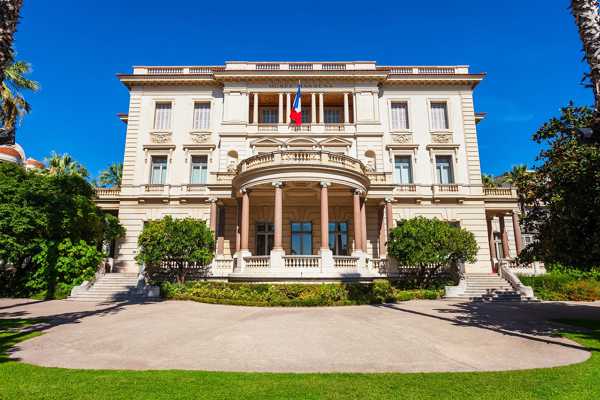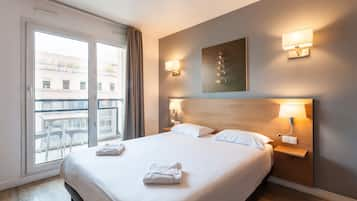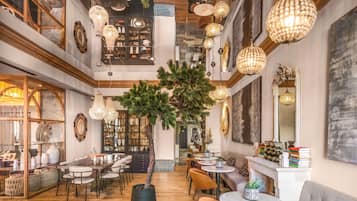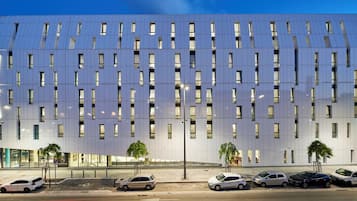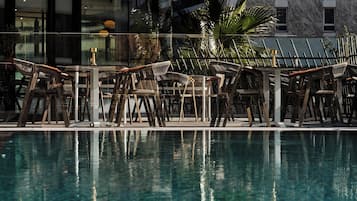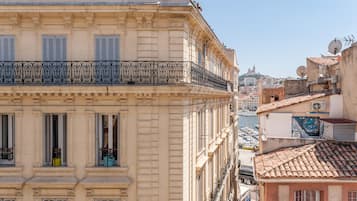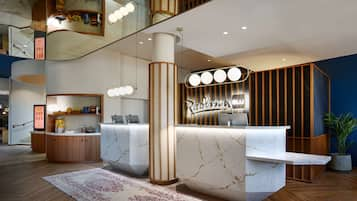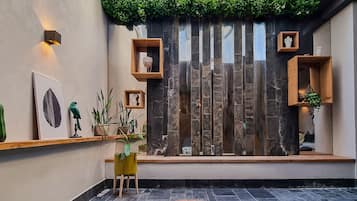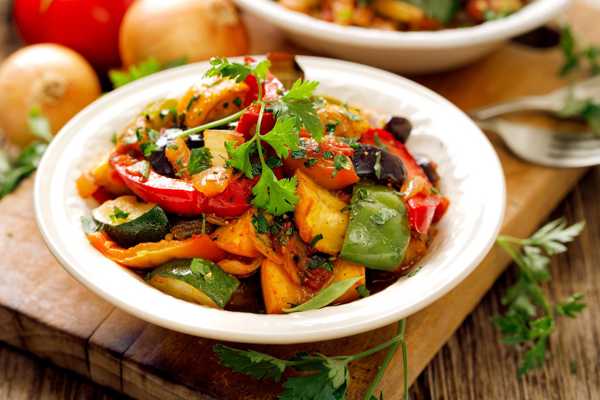The best things to do in Provence make it a traveller's dream destination with scenic landscapes, Roman ruins and quaint hilltop villages. You’ll also find endless culinary delights, from farmers' markets and family-run wineries to Michelin-starred restaurants. This region has long attracted artists, including Cézanne and Van Gogh, who were entranced by the region’s diverse natural beauty, elegant architecture and colourful fields of sunflowers and lavender.
Though it would be tempting to spend A Year in Provence like Peter Mayle’s best-selling book, there’s also plenty to make a visit of just a week, or even a few days, worthwhile. Take a look at our pick of the best things to do in Provence to get a taste of what's available.
What are the best things to do in Provence?
- 1
Rhône River
Starry nights and scenic sights

- Couples
- Luxury
- Photo
Flowing from the Swiss Alps to the Mediterranean Sea, the Rhône is one of Europe’s great rivers, with some spectacular sights along its meandering path through Southern France. There are myriad ways to explore the river, from short 1 or 2-hour trips to sights such as Bartelasse Island in Avignon and cruises of a week or more with onboard accommodations.
Multi-day tours afford a chance for you to discover magnificent Roman monuments, local wineries and olive groves, as well as to witness the rolling Provençal landscapes that inspired the works of Vincent van Gogh. Most tours include stops at Avignon and Arles with detours to charming towns such as Martigues, which is also known as 'Little Venice'.
- 2
The markets of Aix-en-Provence
The birthplace of post-impressionist artist Cézanne

- Couples
- Photo
- Shoppers
With its thriving food, handicrafts and flower markets set in picturesque squares and streets, the elegant city of Aix-en-Provence is a captivating place to wander and shop.
Start in the Old Town to explore its labyrinth of narrow streets dotted with markets, boutiques and cafés. The finest regional foods are on display at Le Grand Marche, that’s The Big Market in English, that runs every Tuesday, Thursday and Saturday morning. Try such local temptations as Cavaillon melon, goat’s cheese, olives and wine. The markets also brim with artisan goods from the area including lavender soap, textiles and earthenware, along with an eclectic mix of antique and second-hand goods.
photo by Anna & Michal (CC BY-SA 2.0) modified
- 3
Roman ruins in Nîmes
Incredible ancient monuments

- Families
- History
- Photo
Discover the history of Nîmes through its glorious Roman ruins that have survived from the days when Emperor Augustus ruled the land 2,000 years ago. Most impressive is the Arena of Nîmes, a huge amphitheatre built in 70 AD that once hosted gladiator battles and is still in use today for concerts.
Another beautifully preserved building is the Maison Carrée museum, originally built as a grand Roman temple in 20 BC. History enthusiasts will not want to miss seeing the 3-tiered Roman aqueduct Pont du Gard and the Jardin de La Fontaine, a 17th-century park where you’ll find the remains of the Temple of Diana and Tour Magne, an ancient Roman watchtower.
photo by Shadowgate (CC BY 2.0) modified
- 4
Gordes village
Panoramic views over Luberon Valley

- Budget
- Couples
- History
Set in the foothills of Vaucluse, about 40 km from Avignon, Gordes village offers heavenly views and a maze of narrow cobblestone streets to explore. You could easily spend days just wandering around, taking in the lovely village with its fountains, squares and stone houses built into the hillside.
Among several historic sights dotted in and around Gorges is the Chateau de Gordes, an imposing castle that blends architectural styles from the Middle Ages and the Renaissance era. Just outside of the village is the fascinating Bories Village with huts made entirely of dry stone.
Map - 5
Old Port of Marseille
Seafood with stunning sea views
- Food
- History
Read moreMarseille is the oldest town in France and its vibrant Vieux Port area has served as the heart of the town’s commerce and community for more than 2,000 years. This port city has a rustic vibe, and it’s also justly known for its fantastic food.
Come to relax at a waterfront bar or café and enjoy views of the traditional fishing boats and luxury yachts bobbing in the bay. No visit to Marseille is complete without trying its signature dish: bouillabaisse. Find some of the most flavourful and authentic versions of this seafood stew at the Le Miramar, Chez Fonfon and Le Rhul restaurants.
Map - 6
Palace of the Popes in Avignon
Built in the 1300s by Popes Benedict XII and Clement VI

- History
- Photo
With 15,000 sq m of floor space, the Palais des Papes, or Palace of the Popes as it’s known in English, is the largest Gothic palace in Europe and has been an imposing presence along the Rhône River since the 14th century. An important centre for the church for some 7 centuries, the palace is now a UNESCO World Heritage site.
Visitors can explore more than 20 rooms including the popes’ private chambers containing frescoes painted by Italian artist Matteo Giovannetti. From June to November, the Great Chapel is host to an annual art exhibit, while in July there are Avignon Theatre Festival performances in the courtyard. Guided tours are available.
Location: 84000 Avignon, France
Open: January–February: Daily from 10 am to 5 pm, March–November: Daily from 9 am to 7 pm, November–December: Daily from 10 am to 5 pm
Phone: +33 (0)4 32 74 32 74
Map - 7
Verdon Gorge
The Grand Canyon of Europe

- Adventure
The spectacular Gorges du Verdon offers hikers a peaceful and varied landscape of deep canyons and turquoise-blue rivers to explore. You can hike trails leading through ancient oak forests, past abandoned churches and villages and winding up to breath-taking viewpoints.
One of the most popular trails is the Blanc-Martel. It runs between Point Sublime in Rougon and Châlet de la Maline. Expect to spend 6 or 7 hours navigating the 14-km trail through wild, mountainous terrain, along with a few steep staircases to climb. Trails are marked for independent hikers, though guided trips are available, too.
Map - 8
Lavender fields
Heavenly scents and sights

- Photo
One of the most iconic sights of Provence is its lavender fields. These can be seen in full bloom across the region during the summer months. The best time of year to see lavender in bloom is late June to early July, though it varies somewhat by location and seasonal weather conditions.
You’ll find some Instagram-worthy photo opportunities at the fields in front of Senanque Abbey in Luberon Valley near Gordes and on the plateaus of Sault or Valensole. Those interested in learning more about lavender can visit the Lavender Museum in the town of Coustellet or stop by a lavender farm, some of which are open to visitors.
- 9
Carrières de Lumières in Les Baux de Provence
Magical art shows in an old quarry

- Nightlife
- Unusual
Used as a limestone quarry from the Roman era to the 1930s, the historic site of Les Baux de Provence now hosts audiovisual shows of bright colours and music. Hidden away in a rocky hillside, the Carrières de Lumières show is an immersive experience where visitors are completely surrounded by images projected onto the huge rock walls.
Exhibitions over the years have featured such artists as Michelangelo, Raphael, Marc Chagall, Picasso and Vincent van Gogh. During the summer months especially, it’s best to book a time slot for your visit online in advance to avoid the queues.
Location: Route de Maillane, 13520 Les Baux-de-Provence, France
Open: Hours vary by season
Phone: +33 (0)4 90 49 20 02
Mapphoto by Joseolgon (CC BY-SA 4.0) modified
- 10
Rosé wine tasting tour
Rosé was introduced to Provence by Ancient Greeks in 600 BC

- Food
Provence produces many types of wine, but by far the region’s most popular is the fresh, fruity and aromatic rosé wine. It’s a quintessential summer tipple, and there can be few better ways to enjoy rosé than by sipping a glass of it on a sun-drenched terrace overlooking the lovely Provençal landscape.
There’s no shortage of wineries to see here, with more than 600 sprinkled around Provence. Most of these welcome visitors for tastings and tours. You can join a guided tour, or just explore the area by car and look for the distinctive 'routes des vins de provence' signs pointing to the next enticing winery up the road.



